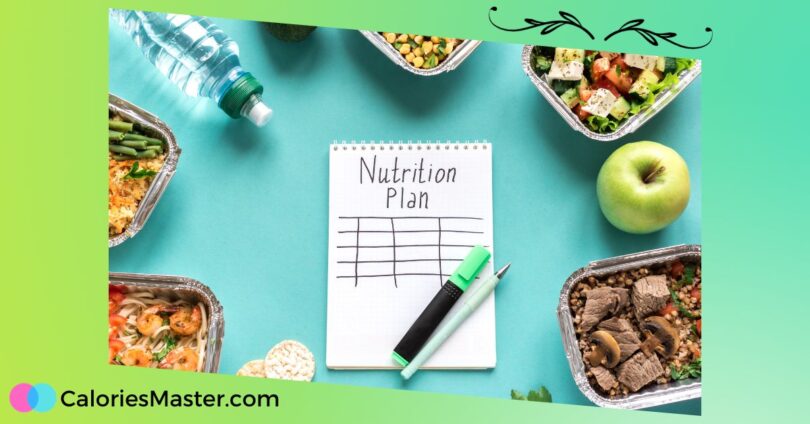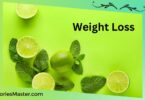Losing weight can be a challenging task for many people. With so many diets and weight loss plans available, it can be difficult to determine which one is right for you. However, one option that has gained popularity in recent years is the weight loss food diet plan.
A weight loss food diet plan is a structured eating plan that focuses on foods that are low in calories, high in nutrients, and promote weight loss. This type of diet can be tailored to your individual needs and preferences, making it a flexible and sustainable option for long-term weight loss.
The benefits of a weight loss food diet plan extend beyond just weight loss. Eating a healthy, balanced diet can also improve overall health, reduce the risk of chronic diseases, and boost energy levels.
With the right approach, a weight loss food diet plan can be an effective way to achieve your weight loss goals while improving your overall health and well-being.
Understanding Weight Loss
Losing weight can be a challenging task, but it is achievable with the right diet plan. Understanding the basics of weight loss can help you make informed decisions about your food choices and achieve your weight loss goals.
To lose weight, you need to create a calorie deficit, which means consuming fewer calories than your body burns. This can be achieved by reducing your calorie intake through a healthy diet and increasing your physical activity levels.
When it comes to weight loss diets, there are many options available, but not all of them are sustainable or healthy. A healthy weight loss diet should be balanced, providing all the essential nutrients your body needs to function properly.
Some of the best foods to include in a weight loss diet plan include:
- Fruits and vegetables: These are low in calories and high in fibre, making them a great choice for weight loss.
- Lean protein: This can include chicken, fish, tofu, and legumes, which can help you to feel full and satisfied.
- Whole grains: These are a good source of fibre and can help to keep you feeling full for longer periods.
It is also important to avoid foods that are high in sugar, saturated fats, and processed foods, as these can contribute to weight gain and other health problems.
In summary, understanding the basics of weight loss can help you to make informed decisions about your food choices and achieve your weight loss goals. A healthy weight loss diet should be balanced, providing all the essential nutrients your body needs to function properly.
Essential Nutrients for Weight Loss
Let’s find out.
Proteins
Protein is an essential nutrient that helps in weight loss. It helps to keep you full for a longer time and reduces the feeling of hunger. Some of the protein-rich foods that can be included in your diet are:
- Lean meats like chicken and turkey
- Fish like salmon and tuna
- Legumes like lentils and chickpeas
- Dairy products like milk, cheese, and yoghurt
- Eggs
Fibre
Fibre is another important nutrient that can aid in weight loss. It helps to keep you full and reduces the absorption of calories. Some of the fibre-rich foods that can be included in your diet are:
- Fruits like apples, pears, and berries
- Vegetables like broccoli, spinach, and carrots
- Whole grains like brown rice, oats, and quinoa
- Nuts and seeds like almonds and chia seeds
Healthy Fats
Healthy fats are essential for the body and can also help in weight loss. They help to keep you full and reduce the risk of heart disease. Some of the healthy fat-rich foods that can be included in your diet are:
- Avocado
- Nuts like almonds and walnuts
- Seeds like chia seeds and flaxseeds
- Oily fish like salmon and mackerel
Incorporating these essential nutrients in your diet can help you achieve your weight loss goals. Remember to also maintain a calorie deficit and exercise regularly for best results.
Role of Hydration
Staying hydrated is an essential part of any weight loss diet plan. Water plays a vital role in weight loss as it helps to flush out toxins from the body, regulates body temperature, and aids in digestion. Dehydration can lead to a decrease in metabolism, which can make it harder to lose weight.
Drinking water before meals can also help to reduce calorie intake. Studies have shown that drinking water before meals can help to reduce appetite and lead to a decrease in calorie intake. This is because water fills up the stomach, making you feel fuller and less likely to overeat.
It is recommended that adults drink at least 2 litres of water per day. However, this amount may vary depending on factors such as age, gender, and activity level. It is important to listen to your body and drink water when you are thirsty.
In addition to water, other beverages such as herbal teas and low-calorie drinks can also help to keep you hydrated. However, it is important to avoid sugary drinks such as soda and fruit juices as they can lead to weight gain and other health problems.
Overall, staying hydrated is an important part of any weight loss diet plan. Drinking enough water can help to boost metabolism, reduce appetite, and aid in digestion. So, make sure to drink plenty of water throughout the day to support your weight loss journey.
Importance of Portion Control
Portion control is an essential aspect of any weight loss food diet plan. It involves eating the right amount of food, not too much and not too little. Portion control helps individuals maintain a healthy weight, reduce the risk of chronic diseases such as obesity, diabetes and heart disease, and improve overall health.
When it comes to weight loss, the amount of food you eat is just as important as the type of food you consume. Consuming too many calories, even from healthy foods, can lead to weight gain. On the other hand, eating too little can slow down your metabolism and make it harder to lose weight.
Portion control helps you manage your calorie intake and ensures that you are eating the right amount of food to meet your body’s needs. It also helps you develop healthy eating habits and make better food choices.
One effective way to control your portion sizes is to use smaller plates and bowls. This can help trick your brain into thinking that you are eating more food than you actually are. Another useful tip is to measure your food portions using measuring cups or a food scale.
In summary, portion control is crucial for maintaining a healthy weight and reducing the risk of chronic diseases. By practising portion control, you can improve your overall health and well-being.
Weight Loss Food Groups
Here is the list.
Fruits and Vegetables
Fruits and vegetables are essential for a healthy weight loss diet plan. They are low in calories and high in fiber, vitamins, and minerals. Eating a variety of fruits and vegetables can help you feel full and satisfied, which can prevent overeating. Some examples of fruits and vegetables that are great for weight loss include:
- Berries (e.g. strawberries, raspberries, blueberries)
- Leafy greens (e.g. spinach, kale, lettuce)
- Cruciferous vegetables (e.g. broccoli, cauliflower, Brussels sprouts)
- Citrus fruits (e.g. oranges, grapefruits, lemons)
Whole Grains
Whole grains are a great source of fiber, which can help you feel full and satisfied. They also contain essential nutrients like B vitamins and minerals. Some examples of whole grains that are great for weight loss include:
- Oats
- Brown rice
- Quinoa
- Whole wheat bread
Lean Proteins
Protein is an essential nutrient for weight loss because it can help you feel full and satisfied. Lean proteins are low in fat and calories, making them a great choice for weight loss. Some examples of lean proteins that are great for weight loss include:
- Chicken breast
- Turkey breast
- Fish (e.g. salmon, tuna)
- Beans and legumes (e.g. lentils, chickpeas)
Dairy
Dairy products are a great source of calcium and protein, which can help support weight loss. However, it’s important to choose low-fat or fat-free dairy products to keep the calorie count low. Some examples of dairy products that are great for weight loss include:
- Low-fat or fat-free milk
- Low-fat or fat-free yogurt
- Low-fat or fat-free cheese
Incorporating these food groups into your weight loss diet plan can help you achieve your weight loss goals in a healthy and sustainable way.
Sample Diet Plan
Here is a sample diet plan that can help you achieve your weight loss goals. This plan includes three main meals and two snacks throughout the day. Remember, it’s important to consult with a healthcare professional before starting any new diet plan.
Breakfast
- 1 boiled egg
- 1 slice of wholemeal toast
- 1 small banana
- 1 cup of green tea
Lunch
- Grilled chicken breast
- Mixed salad with lettuce, cucumber, and tomato
- 1 small wholemeal pita bread
- 1 small apple
Dinner
- Grilled salmon fillet
- Steamed broccoli
- 1 small sweet potato
- 1 small orange
Snacks
- 1 small pot of low-fat Greek yogurt
- 1 small handful of mixed nuts
This sample diet plan provides a balanced mix of protein, carbohydrates, and healthy fats. It also includes plenty of fruits and vegetables to ensure you’re getting the necessary vitamins and minerals. Remember to drink plenty of water throughout the day to stay hydrated.
It’s important to note that this is just a sample diet plan and may not be suitable for everyone. It’s always best to consult with a healthcare professional before starting any new diet plan.
Potential Risks and Considerations
When embarking on a weight loss food diet plan, there are certain risks and considerations that you should be aware of. These include:
Nutrient Deficiencies
Restricting your calorie intake can lead to nutrient deficiencies, particularly if you are not consuming a balanced diet. It is important to ensure that you are getting enough vitamins and minerals, such as iron, calcium, and vitamin D. Consider taking a multivitamin or consulting with a dietitian to ensure that you are meeting your nutritional needs.
Loss of Muscle Mass
When you lose weight, you may also lose muscle mass. This can be particularly problematic if you are not engaging in strength training exercises. To maintain muscle mass, it is important to incorporate resistance training into your exercise routine.
Plateaus and Rebound Weight Gain
It is common to experience weight loss plateaus, where your weight loss stalls despite your continued efforts. Additionally, many people experience rebound weight gain after completing a weight loss diet. To avoid plateaus and rebound weight gain, consider incorporating regular physical activity into your routine and adopting a sustainable, balanced diet.
Psychological Effects
Weight loss can have psychological effects, both positive and negative. While losing weight can boost self-esteem and confidence, it can also lead to body image issues and disordered eating behaviours. It is important to approach weight loss in a healthy and sustainable way, and to seek support from a mental health professional if necessary.
Overall, while weight loss can have many benefits, it is important to approach it with caution and to consider the potential risks and considerations.
Weight Loss Food Diet Plan – Conclusion
In conclusion, a weight loss food diet plan can be an effective way to lose weight and improve overall health. By incorporating a variety of nutrient-dense foods and reducing processed and high-calorie foods, individuals can create a sustainable and healthy eating plan.
It is important to note that weight loss is not a one-size-fits-all approach and may require individualized adjustments based on personal preferences and goals. Consulting with a registered dietitian or healthcare professional can provide additional guidance and support.
Incorporating regular physical activity and making lifestyle changes can also contribute to weight loss success. It is important to approach weight loss with a balanced and realistic mindset, avoiding fad diets or extreme measures.
By making small, sustainable changes to your diet and lifestyle, you can achieve long-term weight loss and improve overall health and well-being.









